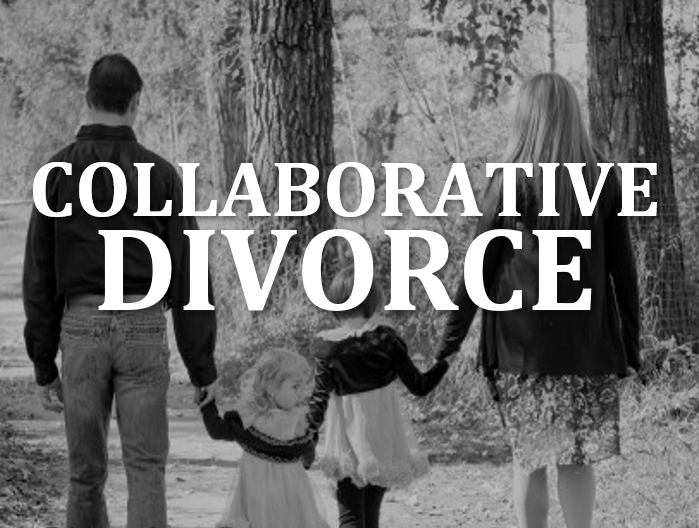Collaborative Law is a confidential, out-of-court alternative based upon mutual respect
Collaborative Family Law differs from traditional litigation and negotiation, based in mutual respect and giving control of the process to the parties involved, not to a judge in court or the lawyers in the negotiation.
Developed as an alternative to the stereotypical litigated divorce, the Collaborative Process is an option for divorcing or separating couples to resolve disputes respectfully without going to court. It offers couples a humane, solution-based approach to ending a marriage or changing parenting status while maintaining a healthy relationship with the other party when that is appropriate, especially when the parties have children.
Collaborative divorce is private and confidential. Clients agree not to go to court so the process is more transparent and less adversarial. The goal is to enhance communications between the couple and to lay the foundation for a healthier relationship during and after the divorce or separation. Through the Collaborative process, relationships are preserved rather than destroyed.
Collaborative Divorce is based upon four principles:
- The parties and their lawyers agree not to go to court
- Both sides engage in an honest, transparent and full exchange of information
- Each solution considers the highest priorities of the spouse or parent and their children
- The entire negotiation process is done in private, away from public scrutiny
How the Collaborative Law Process works
First step:
Once the Collaborative Process has been chosen, you and your spouse or partner each selects a collaboratively-trained lawyer to assist in the negotiation of a settlement and the preparation of all required documents. You will have to retain your lawyer separately, likely with a legal representation agreement and a retainer deposit.
Second step:
You, your spouse or partner, and your lawyer sign an agreement not to go to court, to treat each other respectfully and to disclose all the information required to come to a final agreement. Collaborative divorce is unique in that you, your spouse and your lawyers meet together for face-to-face discussions (or online as the circumstances warrant and everyone agrees) and negotiations begin without the threat of ending up in court.
In many cases, a collaboratively-trained neutral financial professional, such as a financial planner or accountant, may also be involved as part of the team.
When children are involved, their interests take priority
We sometimes involve a collaboratively-trained neutral family relations professional to help you stay focused on your top priorities and to improve critical communication and parenting skills. This professional also helps formulate a parenting plan if you have minor or dependent children.
Benefits of Collaborative Family Law
Designed as an alternative to conventional divorce and family litigation, the Collaborative Process offers many distinct advantages:
- You maintain control of the outcome. Decision making is directly in your and your spouse’s hands rather than in the hands of a judge. This means that you are not bound by a ‘one size fits all’ resolution.
- Your divorce is confidential. Problems and financial information are kept private and are not a part of the public record. Nothing becomes public.
- Your voice will be heard. The Collaborative Process recognizes and understands you and your spouse’s needs, interests, concerns and goals, while allowing each of you to be heard throughout the process.
- You can maintain respect for each other throughout the process. The Collaborative Process changes the notion of divorce from adversarial and win/lose, to a problem-solving experience in which everyone is involved in a positive, win-win situation.
- You can expedite the process. The Collaborative Process can be much faster than litigation, especially given the difficulty of obtaining hearings and trials before judges.
- You have better control of costs. The focus is on being as efficient as possible and utilizing cost effective professionals. This often results in reduced legal fees.
- You can mitigate the trauma of conflict on your children. Children are given a voice in the process through a family relations professional, reducing potential trauma to the children that can lasts for years.
- You are part of a team. Collaborative lawyers work with each other, you and your spouse with the common goal to help you resolve your case rather than fight against each other.
- You learn how to resolve differences. The ideal is by working together to achieve a resolution, you and your spouse learn how to communicate in manner which reduces conflict and aims at resolution.
Is Collaborative Law used in other areas of Family Law besides divorce?
Although the Collaborative Process has primarily been used to resolve separation and divorce, it is also an ideal method to resolve other family matters, such as:
- Pre- and post-nuptial agreements: Collaborative lawyers help couples design a mutually acceptable pre-nuptial agreement. The goal is to help clients enter into an agreement that resolves potential future disputes.
- Non-married couple agreements: The process can facilitate resolutions that cannot be use in litigation. Unmarried couples who want to live together have very limited rights and obligations in Ontario. Through the Collaborative Process, a common law couple can voluntarily agree to have certain rights and obligations that would be recognized under Ontario law.
Why retain SullivanLaw as your Collaborative Divorce lawyer?
We have a longstanding reputation for helping families through the divorce process with as little stress, upset and family conflict as possible. Divorce is never easy, and adding long, expensive court proceedings makes it even more difficult (and expensive) for everyone. A Collaborative approach to divorce can make a huge difference to our clients and their families.
To find out if Collaborative Divorce is right for you, complete our confidential online questionnaire.

